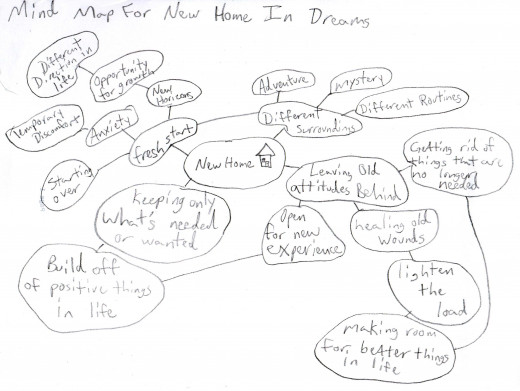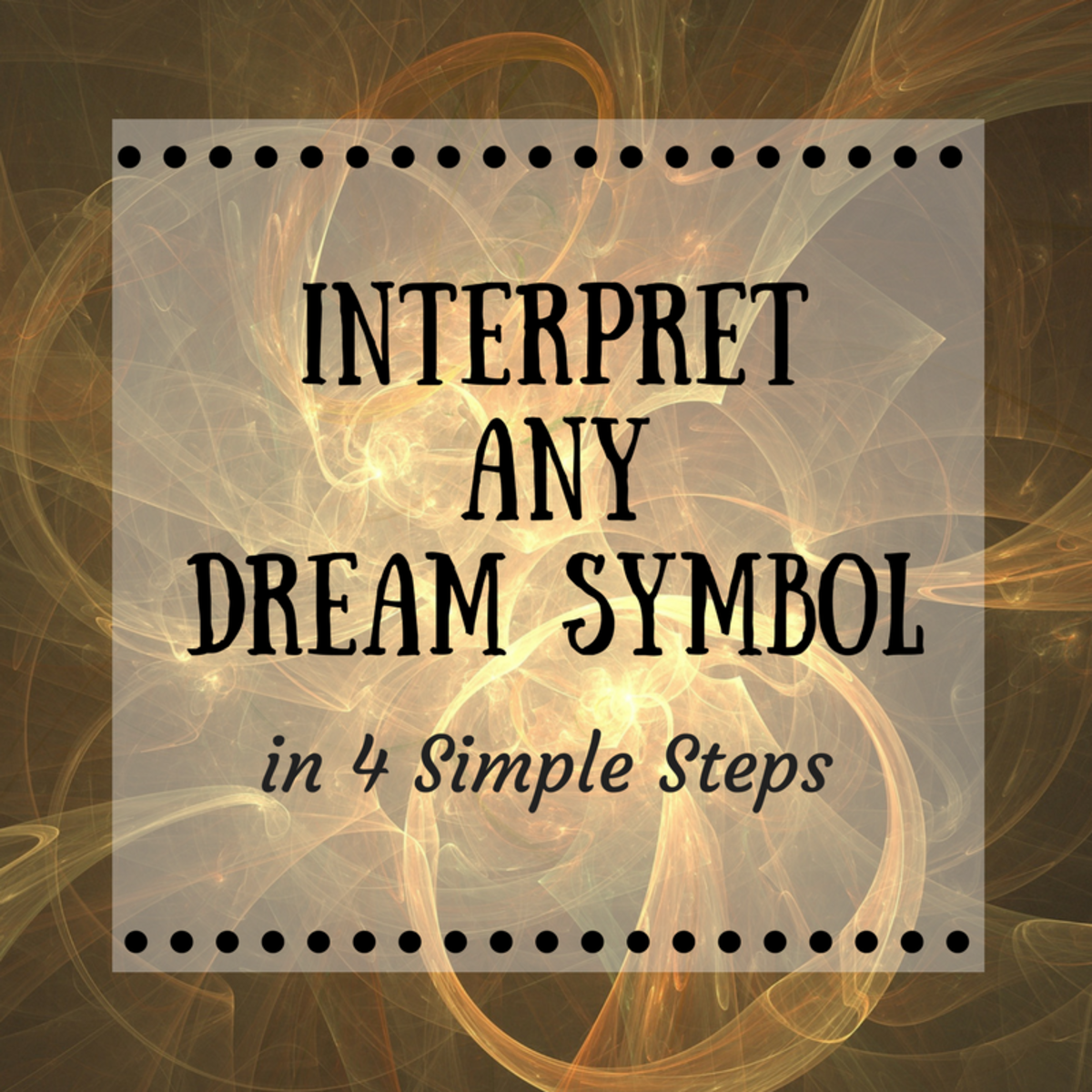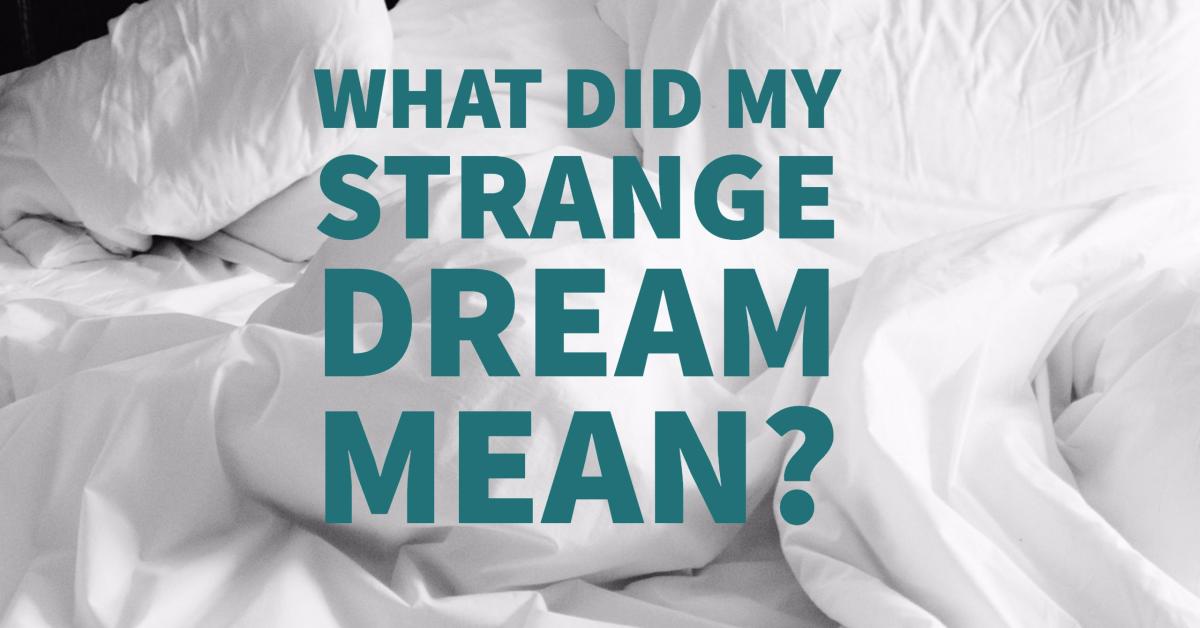How to Personalize Dream Interpretation
Since the beginning recorded history, humans have wondered what dreams are and what they mean. Because this is a concern around the world, there are different ways of interpreting your dreams. The methods I share below work best for me.

Personal Dream Meanings
When it comes to dream symbolism, the most important meaning to any symbol is in what it means to you on a personal level. The frame of reference through which we view our lives dictates what dream symbols mean.
On top of that, dreams are our brain's way of replaying what happened in our waking life. It's in our sleep that we attempt to make sense of patterns in relationships and events in our waking hours. Other times, dreams prepare us for future possibilities, the worst manifesting as nightmares.
Yet, it's the creative parts of our brains that are active. While we sleep, the logical parts of our brains turn off, making dreams harder for our waking mind to understand.
While dreams and their symbols are the focus of analysis, there's more to consider, as well. We should also look at what’s going on in our lives around when we had the dream.
When you put your dreams in the context of every day life, you'll be able to spot why you had them and what they're telling you with more ease.
For instance, I had a dream about moving into a new house recently. It had hidden rooms, underground tunnels, and even a staircase that turned into a slide. In short, it’s my perfect home. For simplicity's sake, I’ll just address the “new home” part of this symbol.
Why Do We Dream?
To me, a new home means many things:
• New beginnings
• Leaving behind old habits
• Anxiety
• Excitement
• Letting go of things I no longer need or want
• Hanging on to things I need and/or treasure
• Creating new pathways out of the things I’ve kept
Provided something devastating doesn’t happen to our current house, we won’t be moving any time soon. That doesn't mean there hasn't been change in my life, though.
I have taken the next step in my writing career and started submitting stories to various publishers.
In many ways, this is a lot like moving to a new house. My habits are changing to make more time for submission and story polishing. I'm working on removing psychological blocks, and I'm building on existing skills.
There’s also a mixture of anxiety and excitement about this new direction, as well. Will my stories be well received? What if they're not? More thrilling, what if they're not?
These feelings and actions are all similar to what I've experienced every time I moved to a new place. A change in residence means changes in habits, getting rid of things I don't want and using what I'm keeping to make the new residence home.
The mixture and anxiety of excitement closely mirrors the submission process. Will my neighbors like me? Will they become friends or enemies?
This comparison is what you want to look for when figuring out what the symbols in your dreams mean.

Do you think dreams have meaning?
Dream Dictionary
Some symbols, however, are a little harder to figure out. A common dream people have is of their teeth falling out or losing their hair.
If the dreamer's having dental problems or experiencing hair loss, that makes sense. If they have a healthy mouth and head of hair, why are they dreaming of such things?
This is where the dream dictionaries come in.
Authors base these symbol definitions on popular cultural, historical and social meanings. Some also determine meanings depending on other factors, like their association with numerology or astrology. Symbols will have different meanings depending on who writes the book and where it's published.
Meanings also vary depending on religion and language. We're hard wired to associate physical imagery with certain words, after all.
For example, hair loss shows a loss of strength, creative ideas and vitality according to my dream dictionary. That book is Dream Images and Symbols, by Kevin J. Todeschi. It was published in the USA in 1995. The publication location and date is important, because it targets a modern, western audience.
When I entered “hair loss dream meaning Christian” into Bing, the first meaning from the Dream Bible popped up. In short, that page states that your hair represents your mindset. To dream about being bald demonstrates either a dramatic change in thought, or carelessness.
Because my book isn’t written from a religious point of view, the meaning it gives is much different from what that web page was.
Odds are, the same symbol will have a different meaning in countries and religions across the world, as well. Interestingly enough, it will probably be something many people in various regions have dreamt independently about.
If you are going to use meanings from books or web pages, remember authors' definitions may not fit with what works best with you. On the other hand, their symbol definitions can be useful if you are truly stumped.

How to Analyze Your Dreams
There are quite a few methods out there to remember your dreams, but I prefer a combination of journaling and mind mapping.
Like countless others, I keep a notebook by my bedside to jot my dreams down when I wake up in the morning. It’s important to do it as close to waking up as possible, because as you go through your day, you’re likely to forget details.
If you decide to give this idea a try, it's a good idea to put the next day's date where your next entry will go before you go to sleep. This saves you the effort of figuring out what day it is when you're not quite awake, and plants the intent of recalling your dreams the next day in your head.
If you don't already remember your dreams, adding this little note to your bedtime ritual will eventually help dream recall become natural.
Another benefit to dream journaling is that you can look back and spot patterns in your dreams. After you've been writing your dreams down for a while, look back at the dreams you've had. You might make connections between what was going on in your life at the time, and things you may not have realized were bothering you.
I like to pick out specific symbols that seem central to my dreams and use a technique called mind mapping on them.
In this case, mind mapping is a helpful way to spot associations and spread it out in a visual format. It’s a good option for people who have problems reading things like outlines or large blocks of text.
I used the new home symbol as an example.
In the center, I wrote “New Home” with a crude drawing of a little house next to it. From there, I wrote out four things I associate with getting a new home. Then, I wrote out things I associate with those four points, and made connections between certain aspects.
This map is a bit incomplete, but what I have there now helped me connect the symbol with the events currently taking place in my life.
You can apply this technique to any symbol, and use it in conjunction with dream dictionaries.
Dream interpretation should be a personal process, because dreams are personal things. That said, while these methods work well for me, don't be afraid to try out various ways of interpreting your dreams to find what works for you.
More on Dream Interpretation
- Tips on Interpreting Dreams with the Color Red
Red can play a vital role in the meaning of your dreams in more ways than one.

© 2014 Emilie Peck








